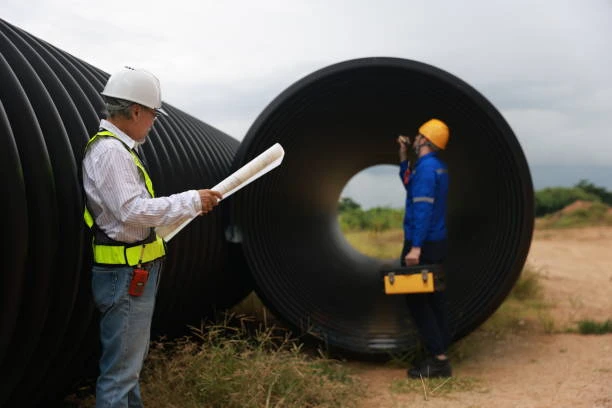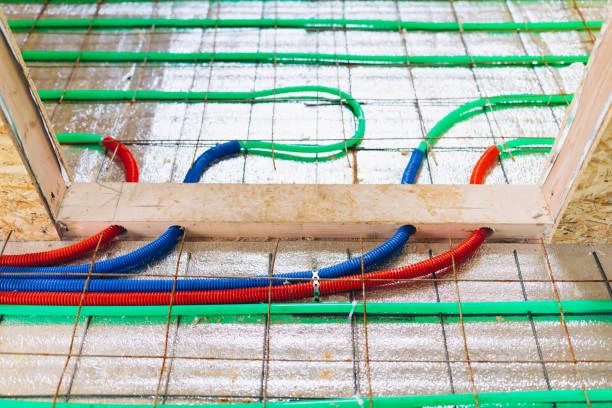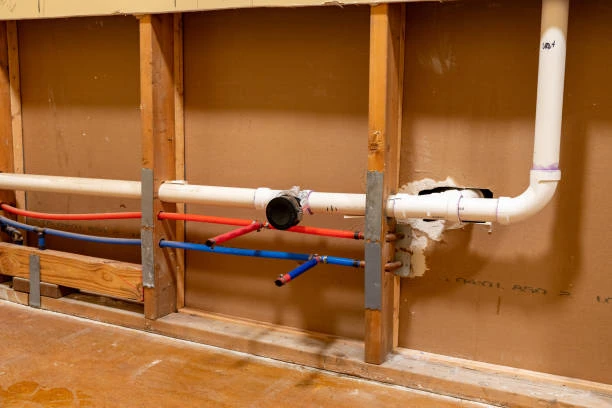Introduction
Water Pipe In a shocking incident in Surat, two brothers have been accus of killing a man using a paddle in a dispute over the laying of a water pipe. This tragedy, which unfolded in a local neighborhood, highlights the intense, often overlooked, issues surrounding basic infrastructure projects, particularly water pipe installations. While the incident itself is tragic and extreme, it also brings to light the critical role water pipe systems play in daily life, community development, and the sometimes volatile nature of local politics.
This article will explore the details of the incident, the role of water pipes in urban infrastructure, the potential causes of such a violent dispute, and the larger societal implications surrounding access to basic services like water. We will also discuss how the installation of water pipes should be handle in a way that prevents conflict and promotes cooperation among all stakeholders.
What Happened in Water Pipe Surat?
The incident in Surat involved two brothers who allegedly killed a man over a conflict related to the laying of a water pipe. The victim, a local resident, had reportedly expressed dissatisfaction with the installation process and the planned route of the water pipe in his neighborhood. The brothers, who were reportedly involve in the construction of the water pipe system, became engaged in a heated argument with the victim, which escalated to violence.
The Conflict Over the Water Pipe
The main cause of the conflict stemmed from disagreements over the installation of the water pipe in the area. Water pipe systems are critical for providing clean water to homes and businesses, but they often require digging up roads, yards, and public spaces, which can disrupt local life. In some cases, disputes arise over the placement of pipes, the route they take, and the inconvenience caused to residents during construction.
The victim reportedly disagreed with the chosen route for the water pipe, feeling it would negatively impact his property or daily activities. These disputes are not uncommon, especially in densely populated urban areas where space is limit, and infrastructure projects can cause significant disruptions.
However, it is important to note that while such disagreements are typically resolve through negotiation or formal complaints to local authorities, this particular case tragically escalated into violence.
Why Water Pipe Did the Dispute Escalate?
The escalation of the dispute from a disagreement to murder is a stark reminder of how frustration with infrastructure issues can spiral out of control. In this case, several factors may have contributed to the extreme outcome:

1. Lack of Water Pipe Communication and Dialogue
One of the most significant factors that often leads to disputes over water pipe installations is the lack of proper communication between the authorities, construction workers, and residents. When residents are not fully inform about the purpose, timing, and scope of an infrastructure project, it can create tension and resistance. The Surat incident highlights how important it is for all stakeholders to be keep informed and engaged throughout the process.
2. Community Tensions and Local Politics
In some areas, local politics can exacerbate conflicts. The laying of water pipes, particularly in densely populated neighborhoods, can become a point of contention due to varying interests among community leaders, residents, and contractors. Disputes over the routing of the pipe, compensation for property damage, or other logistical concerns can create an environment where tensions are high and conflict is more likely to erupt.
3. Economic and Social Stress
In many cases, community disputes over infrastructure can also be root in broader economic and social pressures. Residents may feel that they being unfairly tread by the authorities or contractors, especially if the installation of water pipes is perceiv as disruptive or damaging to their property. Economic hardship, especially in underprivileged areas, can make residents more sensitive to any perceived injustice, leading to heightened frustration.
4. Access to Water and Basic Services
Water is one of the most fundamental needs for any community, and the distribution of water pipes can be a highly charge issue. If certain areas of a neighborhood are not connect to the water supply, or if there are delays in water pipe installation, it can lead to a sense of inequality and injustice. In this case, the tension surrounding access to water may have been a driving force behind the argument and eventual violence.
The Role of Water Pipe in Urban Infrastructure
Water pipes are an essential component of urban infrastructure, providing access to clean water for drinking, cooking, sanitation, and other vital needs. Without a well-developed water pipe system, communities can experience a host of problems, including water scarcity, poor sanitation, and public health issues. Here’s an overview of the key roles that water pipes play in modern society:
1. Water Pipe Providing Clean Water
The primary function of water pipes is to transport clean water from treatment facilities to homes and businesses. This water is necessary for daily activities like drinking, bathing, and cleaning. Water pipes ensure that clean, potable water is available to all members of the community.
2. Water Pipe Supporting Public Health
Access to clean water is directly tiry to public health. Poor water quality or a lack of access to water can lead to the spread of diseases such as cholera, dysentery, and typhoid fever. Water pipes help reduce these health risks by ensuring that communities receive clean and safe drinking water.
3. Boosting Economic Water Pipe Development
A reliable water supply is essential for businesses, industries, and agricultural activities. Without water pipes, economic growth can be hinder, particularly in urban areas where large populations depend on a constant and dependable water supply. Water pipe infrastructure is a key factor in the development of new businesses, factories, and residential areas.
4. Enhancing Quality of Life
A reliable and efficient water supply improves the overall quality of life for residents. It allows for better hygiene, easier access to food preparation, and a more comfortable living environment. Well-maintained water pipe systems also ensure that residents have access to water for irrigation, landscaping, and other community needs.
The Importance of Water Pipe Conflict Resolution in Infrastructure Projects
The Surat incident serves as a reminder of the importance of conflict resolution mechanisms in infrastructure projects, especially those that affect communities on a large scale. While it’s understandable that residents may have concerns or objections to construction work that impacts their property or daily life, it’s essential that these issues are resolve peacefully.
1. Mediation and Dialogue
One of the most effective ways to prevent disputes over water pipe installations is through mediation and open dialogue. Local governments, contractors, and community leaders should work together to ensure that residents’ concerns are hear and addressed before construction begins. Public meetings, consultations, and transparency can go a long way in reducing misunderstandings and building trust within the community.
2. Community Involvement
Community involvement in the planning stages of infrastructure projects can help ensure that residents feel included and respected. When community members are allowe to provide input on the design and routing of water pipes, they are more likely to feel invested in the success of the project and less likely to resist or oppose it.
3. Clear Communication
Clear communication between all parties involved is crucial. Residents should be keep informed about when construction will take place, how it will impact their property. and what steps will be take to minimize disruptions. If there are delays or changes to the original plan, these should be communicate promptly and effectively.
4. Water Pipe Government Accountability
Local governments and authorities must take responsibility for the equitable distribution of resources, including water. If residents feel that they are being unfairly exclude from access to basic services like water. It can lead to frustration and conflict. Ensuring that infrastructure projects are implemente fairly and transparently is key to preventing such disputes.
Conclusion
The tragic incident in Surat, in which two brothers killed a man over a dispute regarding the laying of a water pipe. Underscores the importance of effective conflict resolution in infrastructure projects. While the dispute was root in disagreements over the installation of a vital water pipe. The extreme escalation into violence highlights the broader challenges faced by communities when it comes to accessing essential services like clean water.
Water pipes are a critical part of urban infrastructure, and their installation should be manage carefully to prevent conflicts. By fostering open communication, community involvement, and government accountability. Local authorities can help ensure that such tragic incidents are avoid in the future. Access to clean water should be a right for all, and it is essential that the process of installing water pipes is handl with care and respect for the communities it serves.
Frequently Asked Questions (FAQs)
1. What caused the conflict over the water pipe installation in Surat?
The conflict arose from disagreements over the routing of the water pipe. With the victim expressing dissatisfaction with the planned route that would affect his property.
2. How did the situation escalate to violence?
The dispute escalated due to a lack of effective communication and the inability to resolve the disagreement peacefully. The argument between the victim and the brothers eventually turned violent.
3. Why are water pipes so important for communities?
Water pipes provide access to clean drinking water, support sanitation, and promote public health. They are essential for the well-being and economic development of any community.
4. What can be do to prevent similar conflicts over infrastructure projects?
Effective communication, mediation, community involvement, and government accountability are essential for resolving conflicts over infrastructure projects like water pipe installations.
5. How can local authorities improve the installation process of water pipes?
Local authorities should ensure that there is transparency, community consultation, and clear communication regarding the plans for water pipe installations. This can help avoid misunderstandings and foster cooperation between residents and contractors.

















